Sunshine Coast musician and Ampersand keys player Jarrod Tutbury says alcohol dominates the Australian music industry, and he has seen too many negative effects. In this investigative report, Jarrod explores how alcohol is impacting younger musicians. If you have any concerns about alcohol in your own life phone Lifeline (13 11 14) and/or the Alcohol and Drug Foundation (1300 858 584).
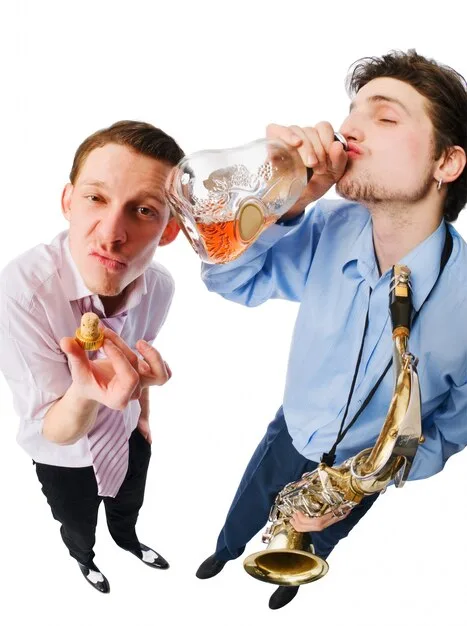
Alcohol is the only drug that people question you for not using.
As a young musician and band manager, who works with young people, I have seen first-hand the crippling effects that alcohol has on the Australian music industry.
I have always found the presence of alcohol to be an irritant.
Licensing laws have prevented me from performing, especially when I was under 18, and drunken punters have been a nuisance.
However, I have always just accepted this state of affairs, until last year I started asking questions.
Young music lovers are shut out of music industry
The catalyst that set this inquiry into motion began when a popular New Zealand band – let’s call them The Kiwis – were set to perform in Brisbane.
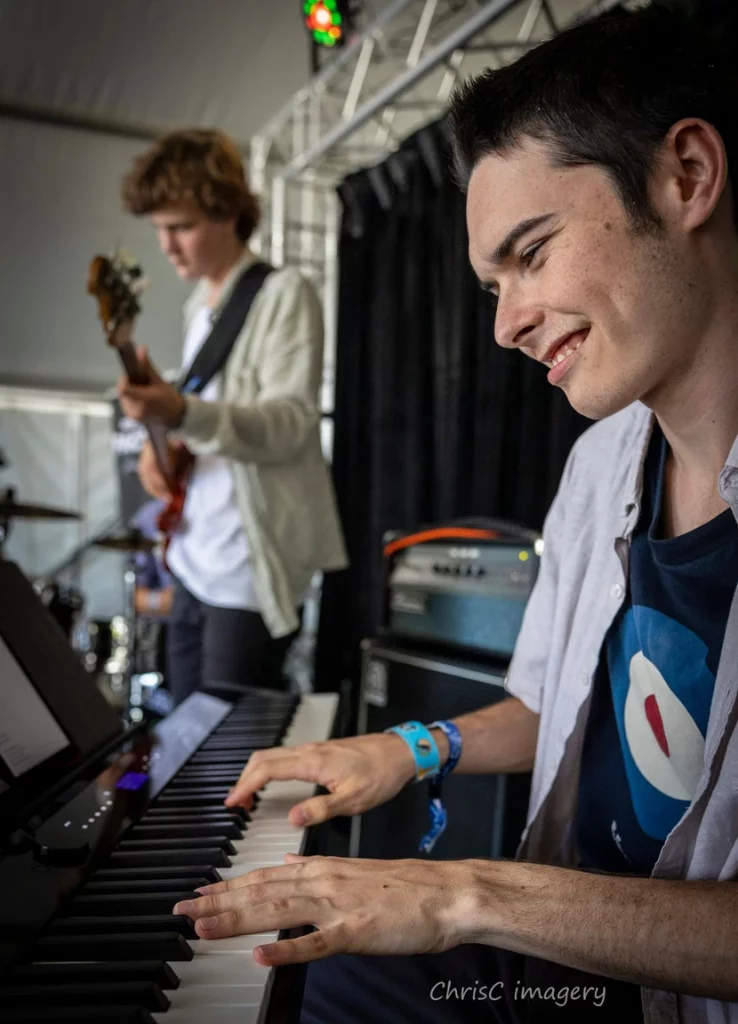
My bandmates and I (pictured) were so excited to see them and soak in their expertise.
However, when we went to buy our tickets we found the show was rated 18+. This meant some of our band’s younger members couldn’t attend.
It was a confusing development, as both the band’s music, and their chosen venue, were not in any way inappropriate.
To get to the bottom of this, I reached out to the management of The Kiwis, who said they had not set the age restriction themselves.
A government that puts alcohol first
The venue is a large, state-government-owned amphitheatre on the river in the City’s parkland centre (we all know the one).
They replied: “Due to alcohol licensing laws, we have had to impose an age restriction.”
A few weeks later, I attended the sold-out Kiwis concert, with thousands of attendees.
It turns out it was one of the safer crowds I had experienced: a good mix of wholesome people, and I could hardly find many people at all consuming substances.
Not an isolated music industry event
I came across many more situations like this.
When I spoke to young musicians, time and time again, I would hear stories about venues refusing them entry or not allowing them to play.
The reason that they were all given? Alcohol.
A toxic Australian culture
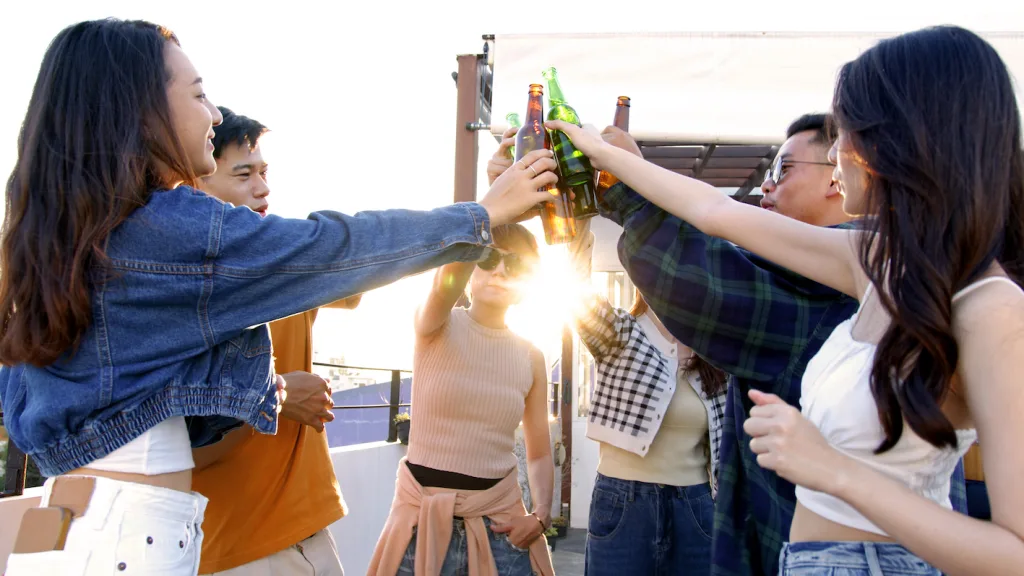
The Australian culture is irrevocably intertwined with alcohol: we drink at home, at social outings and at business meetings.
Almost half of young people are drinking beyond recommended guidelines, and alcohol-related deaths are at a 10-year high.
The 2024 National Drug Strategy Household Survey found that young women aged 18-24 (40%) consumed alcohol outside the recommended healthy guidelines, compared to 45%
of young men.
Robert Taylor of the Australian Drug Foundation told the ABC it’s not just young Aussies who drink at worrying levels.
He says a third of the population drink in excess, meaning they drink more than four standard drinks in one sitting, or more than 10 in a week.
“Unfortunately, risky drinking continues to be at unacceptable levels across the board in the Australian community.”

Alcohol in the workplace
The pervasiveness of alcohol in the Australian music industry is supported and encouraged by the nature of a musician’s work.
Events, gigs, weddings, and parties, are all places where alcohol is usually sold. And they account for a large proportion of music industry jobs.
Unlike in a other workplaces, such as a doctor’s practice or a grocery store, alcohol is readily available to working musicians on shift.
As a working musician, I have been to events, such as album launch nights, where the attendees were all focussed on drinking, not the music.
The 2022 Raising Their Voices report by the Music Industry Review explicitly makes mention of this in the form of a poignant, anonymous quote.
“I really don’t think that part of the culture will change. Everything is about alcohol, even the launch nights no one is listening to the artist, they’re just getting drunk.”
An unnamed musician

Drink vouchers an issue
“Riders” are alcoholic drink vouchers given by venues as an incentive to playing musicians.
However, this becomes an issue when artists are under the legal drinking age.
The fact that this is standard practice is even more worrying for young musicians entering the industry.
In no other career is it considered appropriate for an employer to offer a contracted employee alcohol while they are completing paid work.
Regional Arts Services Network (RASN) officer for South-East Queensland, Emily Murphy-O’Neil, has decades of experience managing artists.
“The idea of riders is interesting. When I was programming the Gympie Music Muster, I didn’t have riders. I would push back against anyone who wanted them.
“I said to them, ‘I’ll provide a simple basic rider, but if you need to be smashed, if you have to have cases of beer or spirits in your green room, then I don’t actually want you on the stage as that’s not respectful to the audience’.
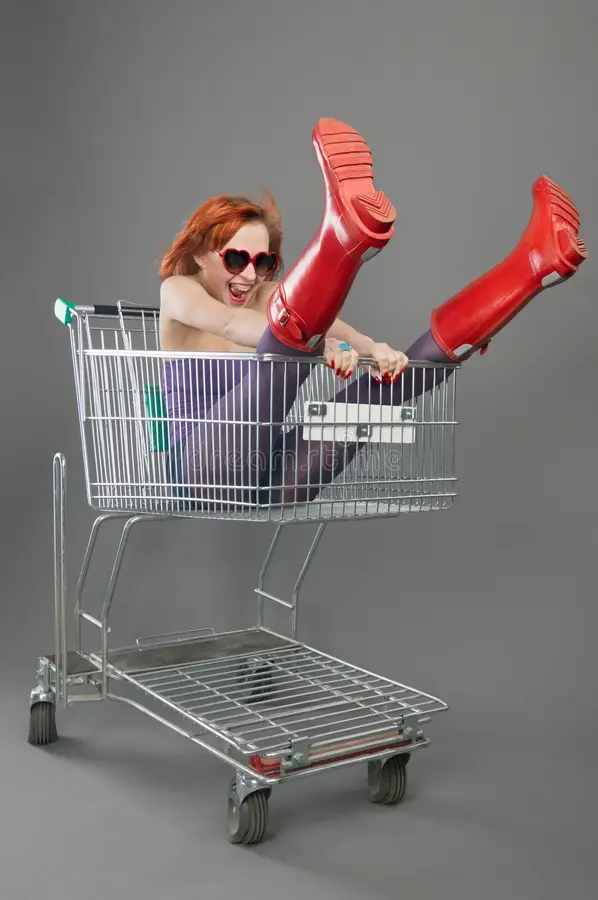
“There is no other workplace that casually accepts that before you do your job, you can have a case of beer and a bottle of spirits.”
Substances lead to risky behaviour
There is a strong correlation between alcohol and the darker aspects of the music industry, such as sexual harassment.
Raising Their Voices found that 55% of participants experienced workplace sexual harassment.
- 76% of participants experienced bullying at work in the music industry.
- 72% of female participants have reported being sexually harassed.
Raising Their Voices also highlights the “uniquely extensive presence of alcohol and other drugs in music industry culture, and the impact this has on the risk of harmful behaviours being perpetrated on others.”
The 2024 National Drug Strategy Household Survey found Australians were still experiencing harm as a result of other people’s alcohol consumption.
And according to findings by the Australian Human Right’s Commission’s Respect@Work report, alcohol is a “key cultural and systemic factor that contributes to the prevalence of workplace sexual harassment.”
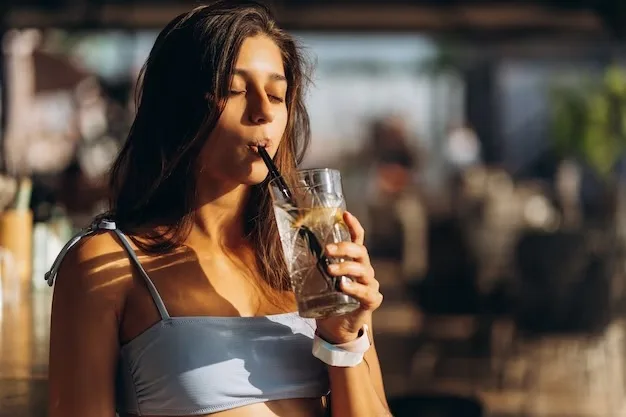
Women and young people at risk
Women and young people are most likely to experience harm or harassment as the result of another individual’s drinking.
The Foundation for Alcohol Research and Education shows the number of women who have experienced fear, verbal or physical abuse has increased from 2.2 million to 2.4 million.
Emily says she experienced many drunk men harassing her at awards ceremonies when she was younger.
And she’s not alone. Almost every musician I know – both young and old – has a similar story.
A pressure to drink
Participants in Raising Their Voices say they felt “under pressure” to drink.
Others say that not consuming alcohol actually damages their working relationships and career prospects.
According to the report, the “party culture” actively excludes musicians who do not drink.
This is an experience I am familiar with.
A belief that alcohol helps
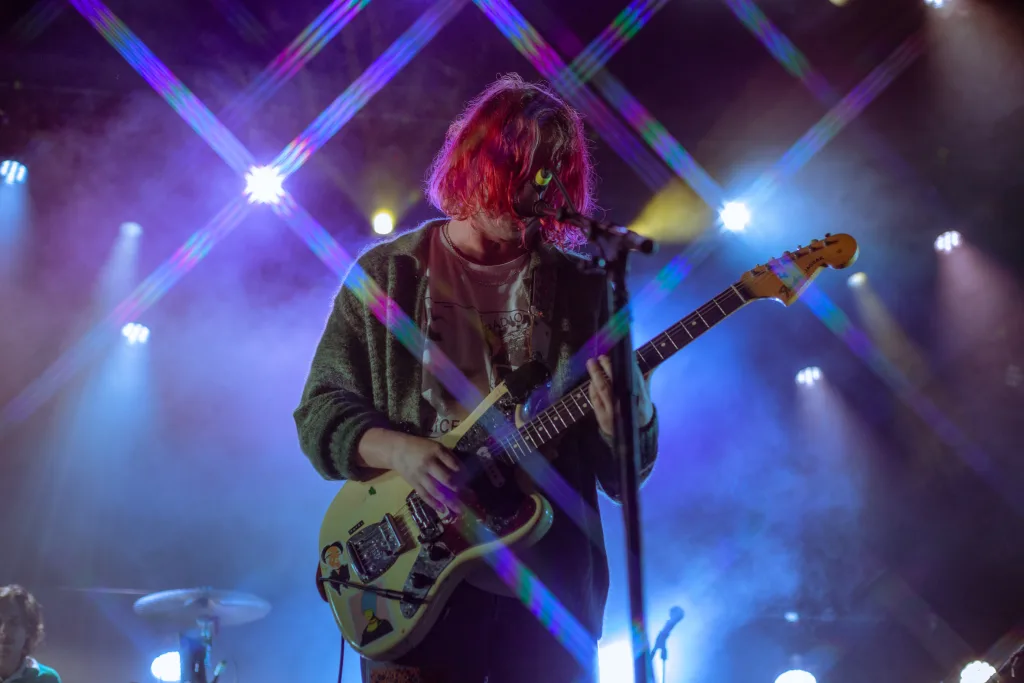
Alcohol can influence a promising musician’s confidence and perceived creative ability.
Emily has worked with many young musicians who believe alcohol makes them more creative, and say they can’t perform or write music without it.
What compounds this risk is the pressure to fit into the industry’s party atmosphere.
Adult musicians, who act as role models, often drink and party to excess, leading to assumptions this is normal, healthy, and responsible behaviour.
Emily says up until a few years ago, the Queensland Music Awards only offered alcohol, adding food as though it’s a novelty.
“It’s (now) all geared and keyed towards the consumption of alcohol and this idea of a party.”
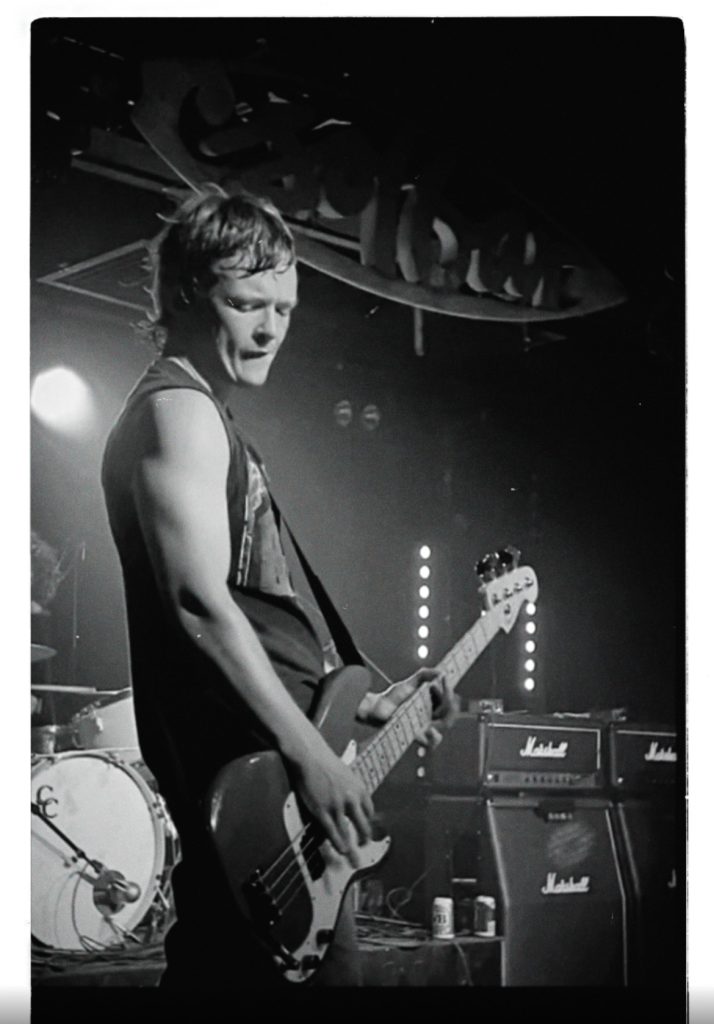
Venues held responsible
Licensed venues have a legal responsibility to manage minors on the premises and ensure they do not consume alcohol.
However, the line blurs when the minors are musicians.
The Queensland Government says exemptions for minors on licensed premises are approved when, “the minor is working on the premises to perform duties as an employee of the owner, or occupier, in the conduct of a lawful business or while receiving training for employment or work experience.”
This means that a 16-year-old musician can perform at the same venue that wouldn’t allow
them to walk through the door as a patron.
An unfair blanket-ban
Conversely, other venues have taken the opposite route of not hiring young musicians at all.
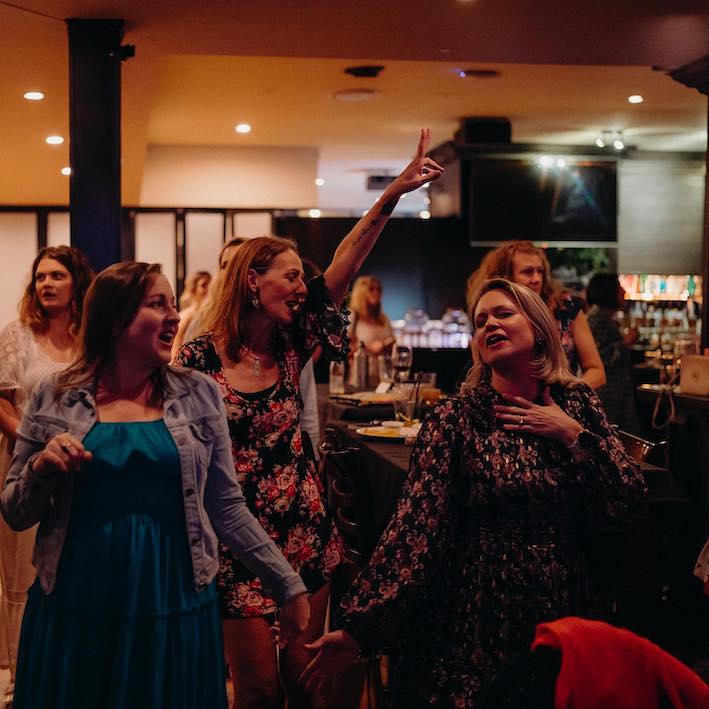
This may seem responsible on the surface, yet it means younger talent miss out.
Isi Semmler is a 17-year-old singer/songwriter who finds this frustrating.
“Not being able to attend or perform at venues due to alcohol laws has affected my ability to
grow as a musician as it limits my experience in the music industry,” Isi says.
“It is hard to expand as a musician as most large venues serve alcohol and if we can’t play there how are we supposed to grow?”
If young musicians cannot perform or attend shows, how are they expected to learn?
Alcohol-free venues don’t exist
Of course, there are family-friendly venues, however, venues that are completely alcohol-free are impossible to find.
“Limiting the ages that can watch musicians play at venues takes away the experience of learning from seasoned musicians and how they perform,” Isi says.
“Both of these negatively influence young musicians trying to grow in the music industry.”
A networking disaster

Emily says alcohol has become the focal point at Bigsound, Queensland’s premier music networking event.
At this industry expo, emerging musicians, most of them young, apply and then pay entry to gain access to some of the industry’s most connected people.
She says professionals are flown in from overseas then fed a champagne breakfast immediately before meeting with attendees.
“They would have no opportunity to interact on a serious level with these jet-lagged and now intoxicated industry professionals.”
Poor employment conditions
Drinking at conferences is widely accepted, and something Emily strongly rejects.
“As an artist manager, going into a conference space, the expectation is that you’re going to be doing business with colleagues and people you want to work with.
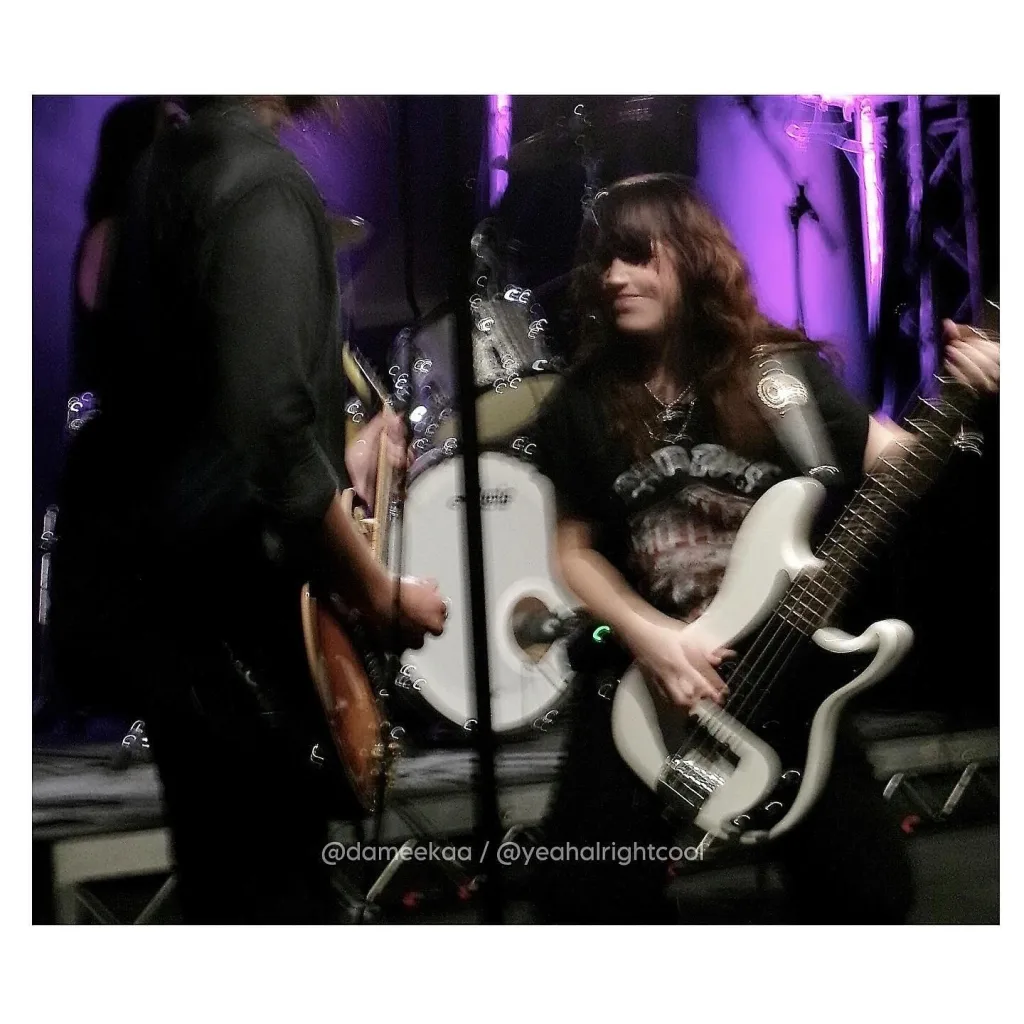
“When that’s compromised by alcohol, it can make things very complex.
“As an artist manager, I’m also representing the artists that I work with.
“So, if I’m going into a conference setting and I’m being compromised by alcohol, that’s then not only affecting my business but their business as well.”
Some good news
According the Alcohol and Drug Foundation, daily drinkers aged 14 and over dropped from 6% in 2016 to 5.4% in 2019.
These statistics show that fewer young people are drinking in general, but there is still work to do.
It is important to state that alcohol consumption itself is not inherently wrong. Yes, it is a drug and yes, it has the potential to destroy lives.
But, responsible adults should be able to manage their own consumption.
A responsibilty to keep young people safe
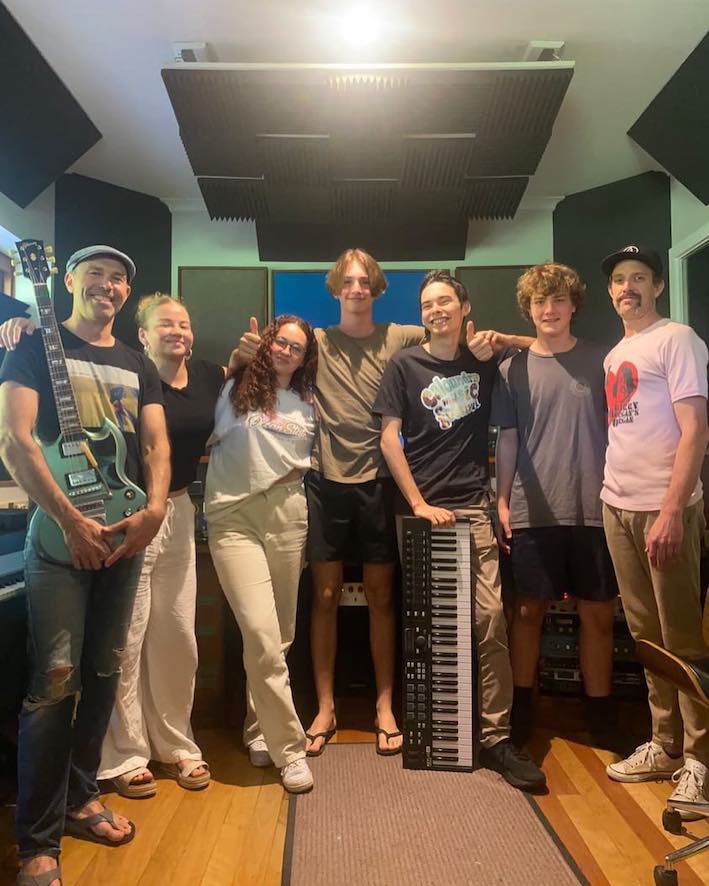
The music industry is already an extremely difficult career path to be successful in without extra obstacles.
My personal choice is to eschew alcohol in solidarity for those who have suffered at the hands of its toxic effects.
Perhaps it is time for a cultural shift in the way Australians manage their relationship with alcohol.
How do you think we should manage and keep safe our younger musicians in the music industry? Email editor@yelo.live with your ideas.
For further information, the Raising Their Voices report and National Drug Strategy Household
Survey are available to read for free online.
Main photo: Fans go wild for Dermot Kennedy @ Brisbane Riverstage by Cassie Jones.



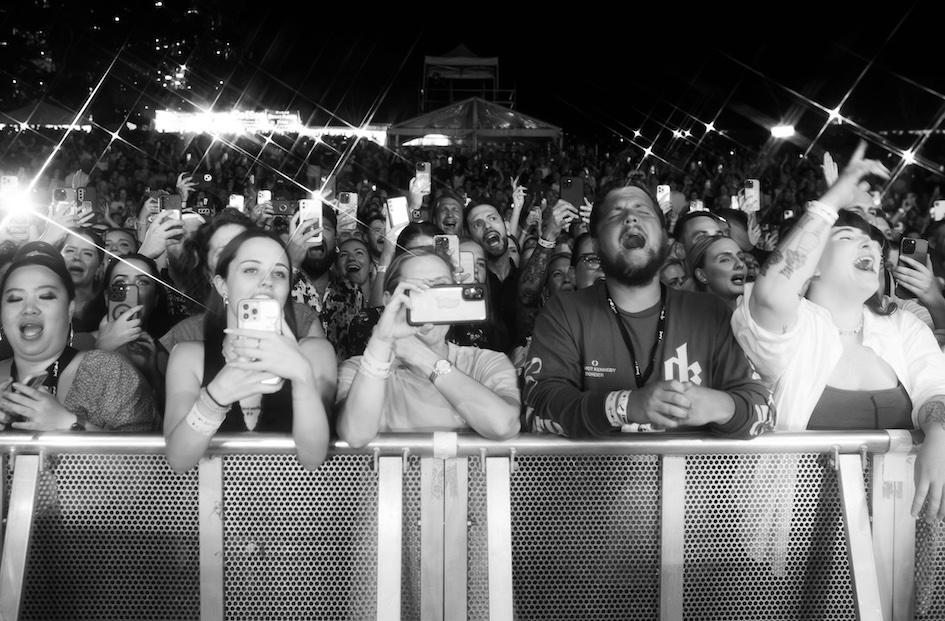










Pingback: UniSC Variety Fest puts spotlight on local talent - Yelo Magazine